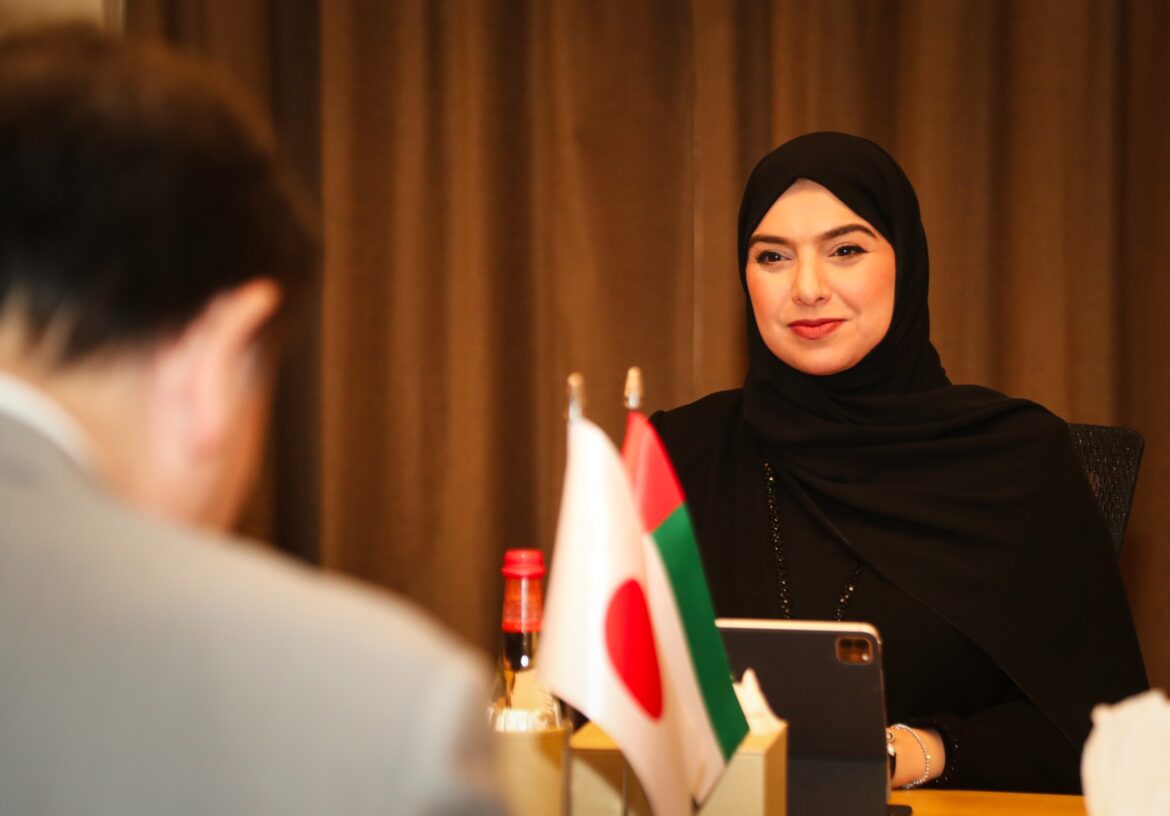The UAE’s Minister of Climate Change and Environment, Her Excellency Dr. Amna bint Abdullah Al Dahak recently met with Japan’s Minister of Agriculture, Forestry and Fisheries, HE Sakamoto Tetsushi, to discuss expanded cooperation on food security and “advanced climate-smart agriculture”.
Part of the UAE-Japan’s Comprehensive Strategic Partnership Initiative (CSPI), at the meeting, the two ministers discussed ways to boost cooperation in the field of agriculture and fisheries under the Memorandum of Understanding signed between the Ministry of Climate Change and Environment (MoCCAE) and the Ministry of Agriculture, Forestry and Fisheries in Japan, in addition to discussing ways to expand food trade between the two countries.
Her Excellency commented: “We believe that partnership and cooperation are paramount to achieving our objectives. Our partnership with Japan epitomises this approach, which will be further strengthened in our move towards a sustainable future.”
According to the two parties, the meeting discussed ways to expand cooperation in enhancing sustainable agriculture with Japan through:
- Technology transfer,
- Research and adoption of practices such as precision farming,
- Smart greenhouses and biotechnology, and
- Fisheries development.
The meeting also discussed the UAE and Japan’s priorities at COP29, including long-term cooperation in the field of climate change adaptation and climate finance.
At the end of last year, Japan signed the UAE COP28 Declaration on Sustainable Agriculture, Resilient Food Systems, and Climate Action, of which 159 countries are signatories.
However, food systems are still not receiving adequate focus within climate conversations and decisions, and progress is slow.
Indeed, food systems change is a fundamental pillar of climate action and essential to reaching key climate goals, with food systems currently accounting for around a third of global greenhouse gas emissions.
A shift away from livestock-derived foods to more plant-based diets has been presented as critical for reducing global emissions. Such solutions were recently put forward in research from Harvard University, which outlined that climate and agriculture scientists agree emissions from the livestock sector must decline by 50 per cent this decade.
Alongside high-emitting food systems, food insecurity is also growing.
According to the latest Global Report on Food Crises (GRFC), in 2023, nearly 282 million people across 59 countries and territories faced high levels of acute hunger, up 24 million from the previous year.
Speaking at the meeting, HE Al Dahak added: “During our meeting, we agreed to work together to achieve our shared goals, especially in the field of agriculture and fisheries. We aim to accomplish this by enhancing cooperation between our teams, as well as by participating in more meetings between the two countries and hosting events that highlight our common food security goals.”



